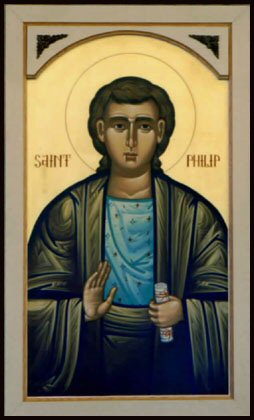Tomb of St. Philip the Apostle discovered in Turkey
The tomb of St. Philip the Apostle, one of the original 12 disciples of Christianity's central figure Jesus Christ, has been discovered during the ongoing excavations in Turkey's south-western province of Denizli.
Italian professor Francesco D'Andria, the head of the excavation team at the Hierapolis ancient city in Denizli, told reporters on Tuesday that experts had reached the tomb of St. Philip whose name is mentioned in the Bible as one of the 12 Apostles of Jesus.
Professor D'Andria said archeologists had been working for years to find the tomb of the Biblical figure, and finally, they had managed to reach the monument while working on the ruins of a newly-unearthed church in Hierapolis.
D'Andria said the structure of the tomb and the writings on it proved that it belonged to St. Philip the Apostle, who is recognized as a martyr in the history of Christianity.
Philip went on through the trying times of the Master’s death, participated in the reorganization of the twelve, and was the first to go forth to win souls for the kingdom outside of the immediate Jewish ranks, being most successful in his work for the Samaritans and in all his subsequent labors in behalf of the gospel.
Philip’s wife, who was an efficient member of the women’s corps, became actively associated with her husband in his evangelistic work after their flight from the Jerusalem persecutions. His wife was a fearless woman. She stood at the foot of Philip’s cross encouraging him to proclaim the glad tidings even to his murderers, and when his strength failed, she began the recital of the story of salvation by faith in Jesus and was silenced only when the irate Jews rushed upon her and stoned her to death. Their eldest daughter, Leah, continued their work, later on becoming the renowned prophetess of Hierapolis.
Philip, the onetime steward of the twelve, was a mighty man in the kingdom, winning souls wherever he went; and he was finally crucified for his faith and buried at Hierapolis.
Through the influence of the Christian apostle Paul, a church was founded here while he was at Ephesus.[3] The Christian apostle Philip spent the last years of his life here.[4] In 80 CE, he was martyred by crucifixion and was buried here. His daughters remained active as prophetesses in the region.[citation needed] The Martyrium was built on the spot where Philip was crucified.



